Chinese companies take a bite out of Apple
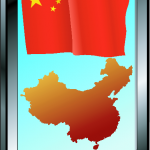
Today, China is a wonderful place for corporations around the world. The financial crisis laws don’t necessarily apply to China as they do to other places like Europe or the United States. So it comes natural for companies to invest more and more to expand into the Chinese market.
Since the end of 2011, China has surpassed the United States as the world"s largest phone market, which is great news for handset manufacturers. Smartphones also play an interesting role, as developers get interested in writing applications for the Chinese market, which would bring revenues to corporations like Apple and Google through their online stores, App Store and Google Play.
Ban on Galaxy Nexus lifted until Apple makes its case
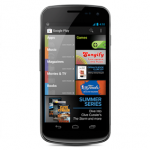
Today, the U.S. Federal Circuit Court of Appeals announced the ban on the Samsung Galaxy Nexus smartphone has been lifted until July 12.
Samsung's week-by-week slog through patent hell continues.
HTC can blame themselves for weak financial results
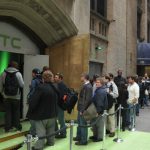
HTC is one of the most important players in the Android world, delivering some of the best smartphones on the market today. In order to improve, HTC UK chief Phil Robertson said that for 2012 they will change their strategy to release only high-quality handsets rather than focus on a high number of devices. That sounded like a great idea at the time and one that was also reinforced by the CEO, Peter Chou. But does it match HTC's recent financial results?
HTC has seen rather disappointing financial results for the second quarter of 2012, the company posting a net income, after taxes of T$7.4 billion ($247.7 million). The profits increased by 65.5 percent over the previous quarter, up from T$4.47 billion ($149 million). Revenues were up as well from the first to the second quarter, from T$67.79 billion ($2.26 billion) to T$91.0 ($3.04 billion), a 34.2 percent increase.
Google Jelly Bean smokes Apple Siri
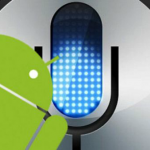
A week has passed since I started up my Google I/O-issue Galaxy Nexus and updated to Android 4.1 (aka Jelly Bean). Since then, my daughter and I faced off Google's Voice Assistant against Siri (on her iPhone 4S). The results aren't surprising. Google's depth as a search provider proves its wherewithal against Apple, which calls Siri a personal assistant. But Jelly Bean's feature, used alongside Google Now, is every bit more and every bit what a digital assistant should be. Siri sucks even more, by comparison.
I will be absolutely clear: Together, Voice Assistant and Google Now represent a watershed development, living up to what Apple promises with Siri. Google has successfully presented its depth of search in a truly meaningful manner -- one that can change how people interact with mobile devices. If execution improves over time, particularly as Google Now learns personal habits, these innovations could be as important to the search giant as the development of its algorithm.
Could Apple be planning its own answer to Google Glass?

Apple, like all big tech companies, files patents for lots of things. Some are used in products it plans to make, but others are just ideas that may or may not ever come to fruition. For this reason you can never read too much into new patents, but that doesn’t mean we shouldn’t sit up and pay at least some attention to the news that Apple has been granted a broad patent for a head-mounted wearable computing device that sounds rather similar to Google Glass.
While the news might suggest that Apple has simply ripped off Google’s innovation, the truth is the patent was actually filed in October 2006 but just granted now.
Smartphones lift Samsung profits by 79%

It seems that Samsung didn’t get the memo about the financial crisis, and they apparently seem to be unfazed by it. The South Korean company is the best-selling phone manufacturer in the world right now, according to Gartner, and today they collect the benefits for all their efforts, reporting huge profit gains, up 79 percent year over year.
Soaring Galaxy S smartphone sales have helped Samsung become the largest smartphone manufacturer in the world as well, beating Apple in the process. This was bound to have an effect over Samsung’s profits this year and the results are starting to show already in their second quarter profits.
You are collateral damage in the patent wars

The patent is mostly a good thing, right? It is a way to show recognition for all the work an individual puts into developing something completely new. It’s useful in determining who creates and who copies. The system may have its kinks, but it’s a good one overall. We revolve around it each day whether we know it or not.
A patent is an easy way to make money, but these days not so much for inventing things but inventing concepts to patent. To make money from them, usually someone has to get sued. The process involves a considerable amount of money, starting with paying lawyers, paying court costs, paying for transport, hotels, meals, and so on. All these things add up and they account for every cent as to what a trial would and does cost.
I declare independence from Apple

Since December 1998, when on impulse I bought the original iMac from CompUSA, I've used Apple gear. No longer. Late yesterday, I replaced the last fruit-logo with another, fulfilling my pledge nearly a month ago to boycott Apple. I wanted to declare independence sooner, but with so much news to write about in June and Google I/O last week, researching and replacing the AirPort base station was too much trouble. But it's offline now -- and, along with Apple TV, going on Craigslist today.
Circumstances since choosing to boycott make me all the more adamant. Last week, US District Judge Lucy Koh issued two preliminary injunctions against Samsung devices -- Galaxy Tab 10.1 and Galaxy Nexus. Yesterday she denied Samsung's request to stay the ban pending appeal. Anticipating Nexus' similar fate, Google swiftly responded by pulling the phone from its online store and dispatching an update to existing phones. I chose to boycott being so angry by Apple's aggressive patent bullying that thwarts competition and takes away consumer choice. Today, I celebrate America's independence anniversary by gaining freedom from Apple.
Google sends wrong update to Galaxy Nexus

Let me see if I understand this. Google, the company that perfected web search and through it changed the lives of billions of people, must disable the local functonality from its flagship smartphone -- all because of Apple? Now do you see why about a month ago I boycotted Apple and last week called the preliminary injunction against Galaxy Nexus shameful?
Watch out. This is one Android update you don't want to accept. I asked my wife this morning: "Do you use local search on your phone?" She has Galaxy Nexus. My lovely looked up with a startled WTF looked and answered: "Yeah". Of course she uses local search on her phone. Who doesn't? You. If you own Galaxy Nexus and accept the update. It's the wrong one for Google to send out. The search giant should dispatch Android 4.1, which if, I understand correctly, changes search so that Apple's bully patent doesn't apply. C`mon, Google, you can do better.
Apple's injunction stopping Galaxy Nexus sales is shameful

I'm ashamed of Apple, and myself for giving anything to iPhone today. To celebrate iPhone's fifth anniversary, I asked BetaNews writers to offer missives based on their experience using the handset. We published Wayne Williams' story on Wednesday, another by Chris Wright early day and my own this afternoon. Two other stories are in the queue. We'll run them over the weekend, however, instead of today. There's no longer any sense of birthday celebration in these halls.
Today, US District Judge Lucy Koh gave Apple a great gift for iPhone's fifth, that I see as anything but. Apple's preliminary injunction against the Samsung-manufactured, Google-branded Galaxy Nexus is an outrage and demonstrates how far fallen is Steve Jobs' company from the innovative spirit that brought iPhone to market. The original set the smartphone market ablaze and brought Apple to unimagined success as seen from 2007. There was a time when Apple innovated rather than litigated and up-ended so-called copycats by making bold, breath-taking successor products. But that Apple is gone, buried with Jobs, who sadly left this world last year.
Preliminary injunction bars Galaxy Nexus, but Apple is a loser for winning
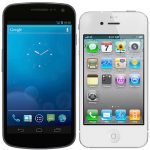
Apple's ridiculous patent assault against Samsung finally hits Google, which suddenly looks genius for choosing Asus to manufacture the Nexus 7 tablet. On Friday, US District Judge Lucy Koh issued a preliminary injunction against Galaxy Nexus, which is Google's flagship, stock Android smartphone. Days earlier she barred Galaxy Tab 10.1. For the preliminary injunction to go into effect, Apple must first put up $96 million.
What timing. To preview Android 4.1 Jellybean, the company gave one to each of more than 5,000 developers during Google I/O earlier this week. The new OS releases to Motorola XOOM tablets and Galaxy Nexus in mid-July, making the smartphone the first to get the important upgrade. The preliminary injunction would somewhat stymie Jellybean distribution ahead of iO6, which Apple is months from releasing. New features include voice response, that in BetaNews testing smoke Apple's Siri. If you're thinking about buying Galaxy Nexus, don't wait!
I'm boycotting Apple
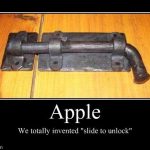
Patent bullying and ongoing competition by litigation and intimidation are reasons why. For me the last straw came earlier this week when Apple sought to ban importation of Samsung Galaxy S III (the request for preliminary injunction is before a judge and a ruling could come as early as next week). The phone launched in 28 countries on May 29 and goes on sale from five US carriers within the next 30 days. Many tech reviewers and pundits have called Galaxy S III an iPhone 4S killer. Apple doesn't have a competitive product in market so instead seeks to block Samsung's -- all under the guise of protecting innovations.
Apple is an amazing marketer that manages perceptions very well. One of these regards innovation and the idea that other companies imitate Apple, often badly, and its trendy ideas must be protected. Perception is one thing. Reality is another. Apple isn't as innovative as its corporate "reality distortion field" would have everyone believe. But the company has gotten quite good at something: Unleashing a torrent of suits to secure patents and to defend them -- and many cover processes that should never have been awarded patents in the first place. Apple has gotten quite good at gaming the patent system. I want no part of it.
Geeks rejoice at Google's legal triumph over Oracle

Google couldn't have asked for better in its intellectual property dispute with Oracle. The judge turned out to be a programmer, and his ongoing guidance to the jury tempered deliberations. Then there were a couple of lucky breaks, the biggest perhaps from former Sun CEO Jonathan Schwartz, who volunteered on the witness stand the company saw no grounds to sue Google. Wherever the luck, and perhaps a tenable defense, Google won big today with the jury finding that Android doesn't violate Oracle patents acquired from Sun.
The reaction, as measured by Google+ posts, is magnanimous for the search giant -- and, well, as for Oracle it's best not to whack the beaten too much more. I chose to take reaction from Google+ because it's such a techie hangout.
Jury says Android does not violate Oracle's patents, APIs up next in landmark case

The fight between Oracle and Google over Android's use of Java took a turn in Google's favor, filings from the District Court for the Norther District of California showed on Wednesday. The jury in the patent phase of the case unanimously voted that Oracle did not prove Android had infringed on Oracle's Java patents.
This decision settles only part of the lawsuit, which Groklaw remarked has been the "longest civil trial" they have ever covered. However, it is a big part. Oracle was calling for an injunction on Android plus damages in its suit, and now that the jury has found no patent infringement, the threat of injunction is nullified.
Fire all the lawyers

Could it be true? Are the courts finally tired of the never-ending patent disputes in Silicon Valley? If the statements made by two judges over the past week are an indication, yes.
This frustration was on display Monday in a Seattle court room as Federal Judge James Robart accused both Microsoft and Motorola of "hubris" and "arrogance" in their ongoing patent dispute, and using the courts to gain the upper hand in licensing negotiations, according to GeekWire's Todd Bishop, who was on hand for the proceedings.
Recent Headlines
Most Commented Stories
BetaNews, your source for breaking tech news, reviews, and in-depth reporting since 1998.
Regional iGaming Content
© 1998-2025 BetaNews, Inc. All Rights Reserved. About Us - Privacy Policy - Cookie Policy - Sitemap.